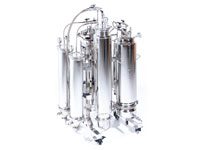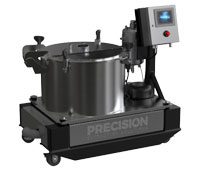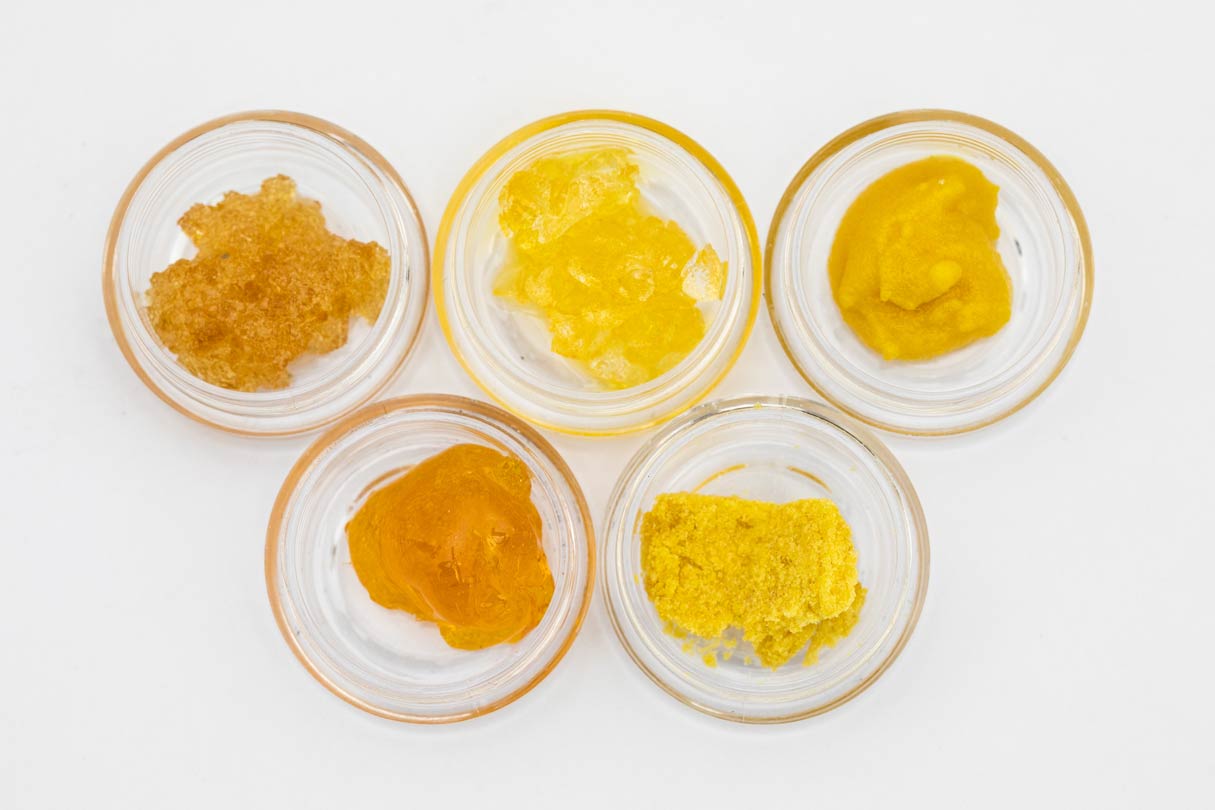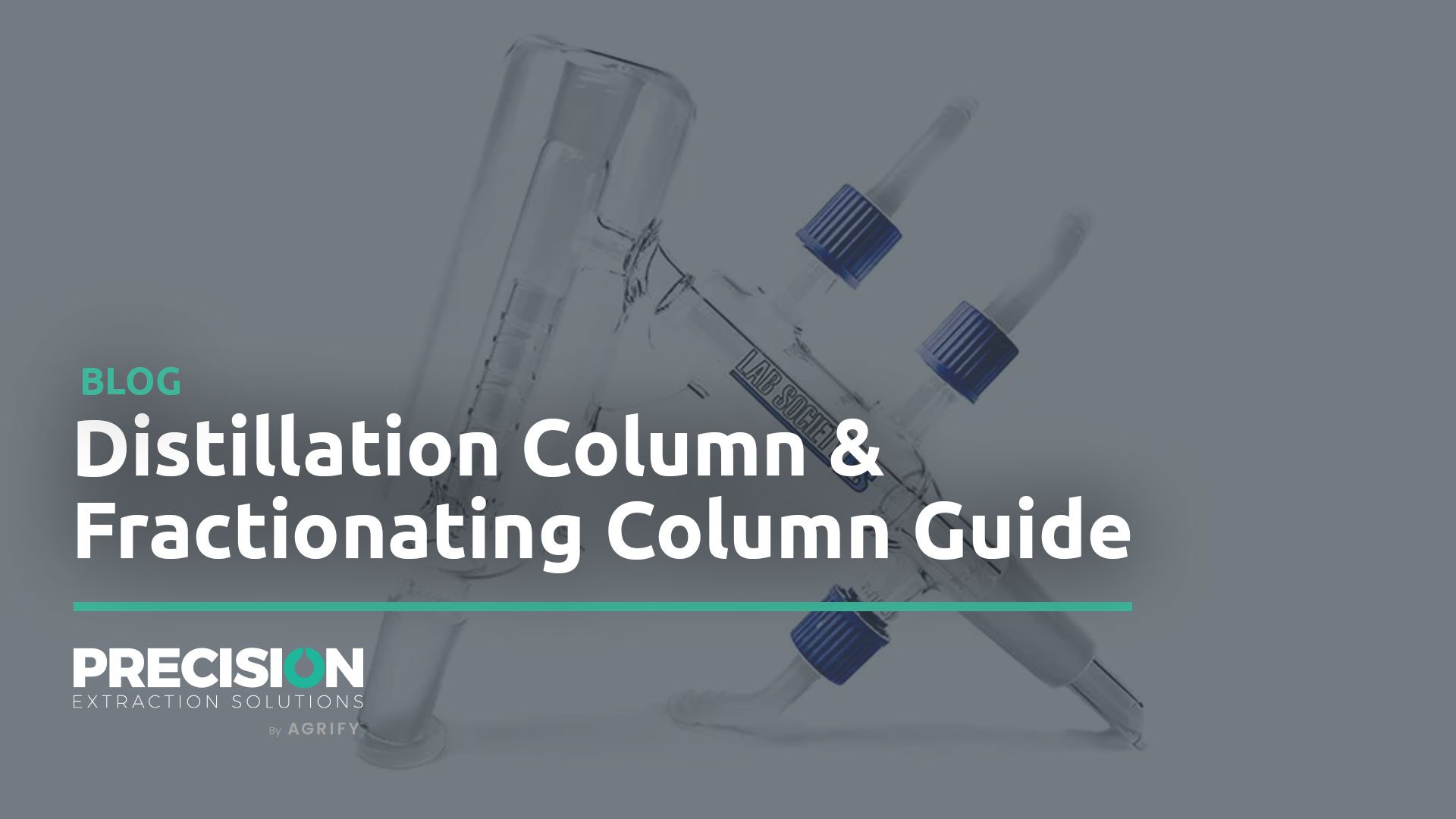The cannabis plant can be compared to a lock, hiding its true treasure—its cannabinoid and terpene content—behind its plant matter. The bulk of these compounds, whether it’s THC, CBD, alpha-pinene or beta-caryophyllene, among others, are found in the resin gland heads. Also known as trichomes, these mushroom-shaped structures can be found on the flowers or leaves of cannabis plants.
Most cannabinoids and the vast majority of terpenes are extremely volatile, meaning they break down or dissipate rapidly in certain conditions such as extreme heat or pressure. Separating these compounds from the biomass has blended art and science during the course of the last decade.
How to Extract: Co2 vs Solvent-Based Extraction
Multiple ways to unlock these cannabinoids and terpenes from the plant structure exist, just as there is more than one way to open a lock. But while you can force open a lock with a screwdriver, the best way to open one remains using a key designed for that lock, and the key to unlocking cannabis’ potential is in solvent-based extraction.
While there are other solvents that work in extraction, and there is a lot of other solvents that may come into play in the future, the three most popular products used in solvent-based cannabinoid extraction today are butane, propane, and ethanol.
Hydrocarbon Solvents – Butane & Propane
There are arguably no better keys in the history of extraction than butane and propane. As non-polar solvents with low boiling points, butane, and propane, or a combination thereof, allow extractors to capture the complete essence of a cannabis variety by dissolving those resin gland heads and pulling all cannabinoids and terpenes from the plant matter without the use of extreme pressures or temperatures. Indeed, butane and propane extractors generally operate at 50-150 PSI of pressure.
The low boiling point of these solvents also allows extractors to remove them without risking evaporating heat-sensitive cannabinoids or terpenes. Propane has a boiling point of -43.6 Fahrenheit, while butane has a boiling point of 30.2 Fahrenheit. To put that into perspective, myrcene, a terpene commonly found in most cannabis varieties, has a boiling point around 331-334 Fahrenheit, while delta 9-THC has a boiling point of 314.6 Fahrenheit.
Most artisanal extractors and some moderate scale operators (those who process less than 1,000 pounds of biomass per day) utilize butane or propane extraction technology and yield a product that has a beautiful light color that also has a terpene rich smell. But scaling propane or butane systems can be costly, as larger systems require more safety precautions to ensure no flammable gasses escape the system and put facilities and employees at risk while requiring that the location itself be up to class 1 division 1 hazardous areas standards.
Ethanol Solvents
How can large-scale businesses process 2,000 pounds of biomass or more per day? The large-scale key for solvent-based extraction is ethanol.
Ethanol, like butane and propane, has a relatively low boiling point (173 Fahrenheit), but, contrary to the other two solvents, it requires no pressure to extract compounds from plant matter. Ethanol is also less flammable than both butane or propane, making it safer to operate for employees and in an industrial/urban environment. Ethanol’s slightly higher boiling point also means that professors will need to decarboxylate or distill their products to ensure that no residual solvents remain in consumer products.
What also differentiates ethanol from butane and propane is that contrary to the other two solvents, ethanol is polar protic, meaning it has a positive molecular charge. This positive molecular charge means ethanol will bind extremely well with cannabinoids and terpenes, but also with unwanted compounds such as fats, waxes, chlorophylls and other water-soluble compounds that can negatively affect your equipment and hurt your product’s quality.
Small-scale operators have figured out a workaround to this problem by simply chilling their ethanol to -40 Fahrenheit, which leaves behind most to all of those unnecessary fats, waxes, and chlorophylls. So how does an extractor chill the quantity of ethanol it takes to process 2,000, 5,000, or 10,000 pounds of biomass per day?
The key to industrial scale processing is properly engineered equipment, proper mass balance, proper post-processing procedures with end-to-end solutions engineered by professionals.
It comes down to properly engineered equipment, proper mass balance, proper post-processing procedures with end-to-end solutions engineered by professionals. This is why we launched our industrial KPD series. The team at Precision Extraction looks at our clients’ needs to understand what it takes for an end-to-end process to integrate into their businesses. That’s part of what differentiates our company: we are end-to-end process integrators, working with you from equipment selection and facility design to post-process assistance. And our work never stops, as our R&D team always tests new processes, parameters, and system designs to ensure you are getting the most from your crop, and your tools.
So What is the Truth about Organic Solvent Extraction?
The truth is organic solvent extraction (including but not limited to using hydrocarbon and ethanol solvents) is the preferred extraction method for the top cannabis and hemp processors in the world. More cannabis and hemp extract awards have been won using Precision’s solvent-based extraction equipment than any other brand. Some of the reasons why the largest and most reputable brands in the industry are using organic solvent extraction are:
- Organic solvents are a very safe method of commercial extraction
- Organic solvent-based extraction is the most efficient means of cannabis extraction
- Organic solvent-based extraction is the most cost-effective means of cannabis extraction
- Organic solvent produced products are perfectly safe to consume and enjoy.
- Organic solvents are NOT harmful to the environment
- Organic solvent extraction produces a great tasting final product
Precision’s Solvent Based Extraction Systems

Hydrocarbon Extraction Equipment
- Closed loop extractors
- Uses butane & propane solvents
- Small to large scale processing
- Suitable for marijuana and hemp
- Maximum control and easy to use

Ethanol Extraction Equipment
- Closed loop extractors
- Mid to large scale processing
- Suitable for marijuana and hemp
- Safe to Use, C1D1 Compliant
Not sure what system is optimal for your operational goals? Schedule a free consultation today!








